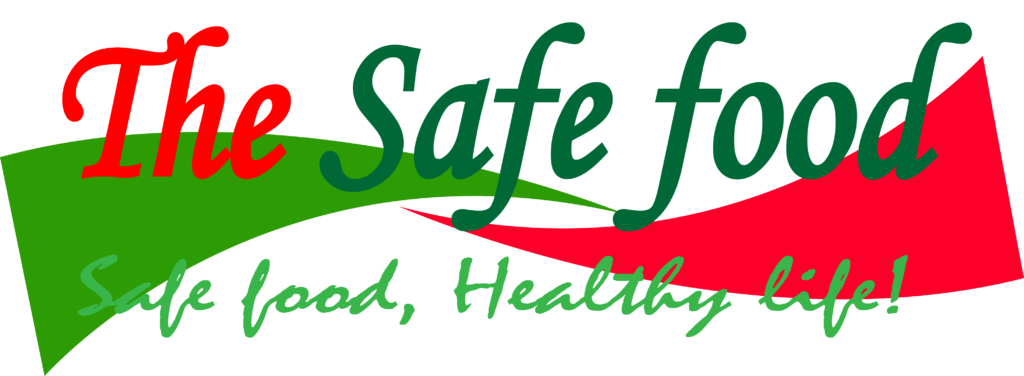Food poisoning is a prevalent and concerning issue affecting millions worldwide. Whether it’s caused by bacterial contamination, viral infections, parasites, toxins, or allergens, food poisoning can result in uncomfortable symptoms and, in severe cases, lead to serious health complications.
Fortunately, understanding the causes of food poisoning and adopting preventive measures can protect our gut and maintain our overall health and well-being. This article aims to shed light on the importance of food safety and provide practical guidance on minimizing the risk of food poisoning. By following these guidelines, individuals can safeguard themselves and their loved ones from the potential dangers associated with contaminated food.
Food safety knowledge is for all!

Every consumer deserves to have high quality and safe food. …Read more!

Exploring various aspects of food poisoning prevention, we will discuss the significance of personal and kitchen hygiene, proper food storage, safe food handling practices, the importance of safe water and food sources, and allergen management. These strategies will empower readers to make informed decisions when it comes to food safety and promote a healthier and safer eating environment.
Moreover, the symptoms of food poisoning and the appropriate steps to take when seeking medical attention will also be discussed. Recognizing the signs of severe cases and understanding when professional help is required is essential to ensure prompt treatment and a faster recovery. By proactively implementing food safety measures and staying vigilant about potential risks, we can protect our gut, reduce the likelihood of food poisoning incidents, and maintain optimal health. Through knowledge and practical application, we can make informed choices about the food we consume and take control of our well-being.
What is food poisoning?
Food poisoning is an infection or irritation of the digestive tract that is caused by ingesting preformed toxins through food or water. These toxins may be originating from microorganisims or many other sources.
Some pathogens are able to produce toxins that may exist in the food even when the bacteria dies. Others may produce toxins when ingested into the body. The most prevalent pathogens include Norovirus, Escherichia coli, Salmonella, Clostridium perfringens, Campylobacter, and Staphylococcus aureus. The symptoms of food poisoning range from mild to severe and they include nausea, vomiting, diarrhea, abdominal pain, and fever. In some instances, food poisoning can lead to more serious complications, especially in vulnerable individuals such as young children, pregnant women, older adults, and those with weakened immune systems.
Note that, poisonous food may not appear or taste different from safe food. Thus, food poisoning will not only occur when spoiled food is consumed. Food that may appear safe may in fact be contaminated with toxins.
Differences between food poisoning and food infections
There are many sources out there that reference food poisoning as being the same as food infection or foodborne illness. Food poisoning and food infections are both types of foodborne illnesses, but they differ in their causes and the way they affect the body.
1. Food Poisoning:
- Food poisoning is caused by the ingestion of pre-formed toxins or chemicals produced by bacteria, molds, or other microorganisms in contaminated food.
- The symptoms of food poisoning usually occur relatively quickly after consuming the contaminated food, often within a few hours. This is because the toxins are already present in the food and do not require time to multiply within the body.
- Common symptoms of food poisoning include nausea, vomiting, diarrhea, abdominal pain, and sometimes fever. The illness is generally short-lived and typically resolves within a few days.
- Examples of food poisoning-causing agents include Staphylococcus aureus (produces heat-stable toxins in foods), Bacillus cereus (produces toxins in cooked rice and other starchy foods), and certain types of molds.
2. Food Infections:
- Food infections are caused by ingesting food contaminated with live, disease-causing microorganisms such as bacteria, viruses, or parasites.
- The symptoms of food infections often take longer to develop because the microorganisms need time to multiply within the body after ingestion. This incubation period can range from a few hours to several days, depending on the causative agent.
- Common symptoms of food infections include nausea, vomiting, diarrhea, abdominal cramps, fever, and in some cases, more severe complications. The duration of the illness can vary based on the specific microorganism and the individual’s health.
- Examples of food infection-causing agents include Salmonella, Campylobacter, Escherichia coli (E. coli), Norovirus, and certain parasites like Giardia and Cryptosporidium.
In summary, food poisoning is caused by the ingestion of pre-formed toxins or chemicals produced by microorganisms in contaminated food, leading to rapid onset of symptoms. Food infections, on the other hand, result from ingesting live microorganisms that then multiply within the body, leading to a delayed onset of symptoms. Both food poisoning and food infections can cause gastrointestinal symptoms, but the specific pathogens and mechanisms involved are different.
Common causes of food poisoning
Food poisoning can be caused by various factors, including improper food handling, inadequate cooking or reheating, cross-contamination, and consuming foods that are past their expiration dates. Consuption of raw or undercooked poultry, meat, eggs or seafood,can also cause poisoning. These foods are more likely to harbor harmful bacteria such as Salmonella, Escherichia coli, or Campylobacter. Furthermore, contaminated fruits, vegetables, and unpasteurized dairy products can also pose a risk.
food can be contaminated by various types of toxins, including microbial toxins, environmental toxins, and processing toxins among others. Here are some examples:
1. Microbial toxins:
- Bacterial toxins: Produced by certain pathogenic bacteria, these toxins can be heat-stable and survive cooking. Examples include:
- Staphylococcus aureus toxin: Responsible for staphylococcal food poisoning when foods are contaminated by infected handlers.
- Bacillus cereus toxin: Causes a type of food poisoning associated with cooked rice and other starchy foods.
- Fungal toxins (Mycotoxins): Produced by molds that can grow on various foods, especially under certain conditions of temperature and humidity. Examples include:
- Aflatoxin: Produced by Aspergillus molds and commonly found in nuts, grains, and dried fruits.
- Ochratoxin: Found in cereals, coffee, and other food products contaminated by Aspergillus and Penicillium molds.
2. Environmental toxins:
- Heavy metals: These can contaminate food through industrial pollution, agricultural practices, or food processing. Examples include:
- Lead: Can be found in some fish, fruits, and vegetables grown in contaminated soil.
- Mercury: Often found in certain predatory fish, like shark and swordfish.
3. Food processing toxins:
- Acrylamide: Forms in starchy foods, such as potatoes and grains, when they are cooked at high temperatures (e.g., frying, baking). It is a result of the Maillard reaction between sugars and the amino acid asparagine.
- Polycyclic aromatic hydrocarbons (PAHs): Can form in grilled, barbecued, or smoked foods, especially those with fat and meat drippings coming into contact with flames or hot surfaces.
- Nitrosamines: Formed when certain foods containing nitrates and nitrites undergo high-temperature cooking or processing.
4. Agricultural chemical residues:
- Pesticide residues: Examples include:
- Herbicides: Chemicals used to control weeds in agricultural settings. Residues may be found on crops after herbicide application. Common herbicides include glyphosate, atrazine, and 2,4-D.
- Insecticides: Used to control insects and pests in agriculture. Residues can remain on fruits, vegetables, and grains. Examples include chlorpyrifos, organophosphates, and neonicotinoids.
- Fungicides: Employed to prevent or control fungal diseases in crops. Residues may be present on fruits and vegetables. Examples include captan, thiabendazole, and carbendazim.
5. Marine toxins:
- Ciguatera toxin: Occurs in certain predatory fish from tropical and subtropical waters, such as barracuda, grouper, and snapper.
- Shellfish toxins: Produced by certain marine algae, leading to illnesses like paralytic shellfish poisoning (PSP), amnesic shellfish poisoning (ASP), and diarrhetic shellfish poisoning (DSP) in individuals who consume contaminated shellfish.
6. Naturally occurring toxins:
- Solanine: Found in green potatoes and related plants. It can be toxic if ingested in large amounts.
- Lectins: Naturally occurring proteins in some plants, which can cause gastrointestinal disturbances if consumed in significant quantities. Examples include kidney beans and raw red kidney beans.
7. Packaging-related toxins:
- Bisphenol A (BPA): A chemical used in the production of certain plastics, including those used in food packaging. It can potentially leach into food and has raised concerns about health effects.
- Phthalates: Chemicals used in some food packaging materials that may migrate into food and have been associated with potential health risks.
Symptoms of food poisoning
The onset of symptoms can be shortlived or last for days, ranging from a few hours to several days after consuming contaminated food. In most cases, symptoms are self-limiting and resolve within a few days without medical intervention. However, severe cases of food poisoning may require medical attention, especially if symptoms persist or worsen or if there are signs of dehydration or other complications. It’s worth noting that certain types of food poisoning can cause specific symptoms. For instance, botulism may lead to blurred vision, difficulty swallowing, and muscle weakness, while some bacterial infections can result in bloody diarrhea or severe abdominal cramps. If you suspect you have food poisoning or are experiencing severe symptoms, it’s advisable to seek medical advice.
- Nausea: Nausea is a sensation of unease or discomfort in the stomach, often accompanied by a feeling of the need to vomit.
- Vomiting: this refers to the forceful expulsion of stomach contents through the mouth. It is the body’s way of getting rid of harmful substances or irritants.
- Diarrhea: Diarrhea refers to frequent, loose, or watery bowel movements. It occurs when the digestive system is unable to properly absorb water or nutrients from the food ingested.
- Abdominal pain: Abdominal pain or cramping is a common symptom of food poisoning. It can be mild or severe and may be accompanied by bloating or discomfort in the abdominal region.
- Fever: Fever is an elevated body temperature above the normal range. While not always present in all cases of food poisoning, it can occur as a response to infection caused by certain bacteria or viruses.
- Fatigue: Feeling weak, tired, or lethargic is a common symptom of food poisoning. The immune response by the body to the infection and the associated gastrointestinal distress can contribute to feelings of fatigue.
- Loss of appetite: Food poisoning can often lead to a decreased desire to eat due to the discomfort and gastrointestinal symptoms experienced. Loss of appetite is a natural response of the body during illness.
- Muscle aches: Some individuals with food poisoning may experience muscle aches or myalgia. This can manifest as generalized body aches or localized pain in specific muscle groups.
- Headache: this may occur as a result of dehydration, electrolyte imbalances, or the body’s inflammatory response to the infection caused by food poisoning.
- Dehydration: Excessive fluid loss due to vomiting and diarrhea can lead to dehydration. Dry mouth, increased thirst, decreased urine output, dark-colored urine, fatigue, and dizziness are an indication of dehydration.
How to prevent food poisoning
Implementation of proper food safety measures, individuals can significantly reduce the risk of foodborne illnesses. The following are strategies and practices necessary to prevent food poisoning and ensure the safety of the food we consume.
- Practice Personal and Kitchen Hygiene – Maintaining good personal hygiene plays a key role in containing the spread of harmful microorganisms. Individuals should thoroughly wash their hands using soap and clean water before handling food, after using the restroom, touching pets, or engaging in any activity that may introduce contamination. Similarly, maintaining a clean kitchen environment by regularly sanitizing surfaces, utensils, and cutting boards is essential to prevent cross-contamination.
- Proper Food Storage – Storing food at appropriate temperatures is essential to prevent bacterial growth. Perishable foods, such as raw meat, poultry, dairy products, and leftovers, should be refrigerated promptly at temperatures below 40°F (4°C). Freezing temperatures should be kept at 0°F (-18°C) or below. Additionally, raw meats should be stored separately from ready-to-eat foods to prevent cross-contamination.
- Safe Food Handling – Proper handling of food minimizes the risk of contamination. Key practices include:
- Thoroughly rinsing fresh fruits and vegetables under running water to remove dirt and bacteria.
- Avoiding the cross-contamination of raw and cooked foods. Separate cutting boards and utensils should be used, and hands should be washed after handling raw meats.
- Adequately cooking foods to safe internal temperatures to kill bacteria. Using a food thermometer is recommended to ensure proper cooking.
- Avoid the consumption of raw or undercooked eggs, meat, poultry, and seafood, as these can harbor harmful microorganisms.
- Properly reheating leftovers to kill any bacteria that may have grown during storage.
- Safe Water and Food Sources – Ensuring the safety of water and food sources is vital in preventing food poisoning. Drinking water should come from safe and reliable sources. When traveling to areas with questionable water quality, it is advisable to consume bottled water and avoid ice cubes made from tap water. Furthermore, purchasing food from reputable suppliers and ensuring that food products are not past their expiration dates are important steps in reducing the risk of contamination.
- Educating and Training – Creating awareness and providing education about proper food safety practices are essential in preventing food poisoning. This includes training food handlers on safe food handling techniques, promoting personal hygiene practices, and fostering a culture of food safety within the community. Individuals should stay informed about current food safety guidelines and regulations to ensure they are following the most up-to-date recommendations.
- Allergen Management – To prevent food poisoning caused by allergens, it is crucial to manage and prevent cross-contamination for individuals with food allergies. Food labels should be carefully read to identify potential allergens, and separate preparation areas and utensils should be used to prevent cross-contact.
Food safety knowledge is for all!

Every consumer deserves to have high quality and safe food. …Read more!

Managing food poisoning at home
Managing food poisoning at home primarily focuses on relieving symptoms, preventing dehydration, and allowing the body to recover. However, it’s important to note that severe cases of food poisoning or those accompanied by persistent or worsening symptoms may require medical attention. Infact, it is highly recommended that if you suspect food poisoning, practice some of these steps while seeking medical assistance from a medical doctor. Here are some general ways to manage food poisoning at home:
- Hydration: Replenishing fluids and electrolytes lost through vomiting and diarrhea is crucial in preventing dehydration. Drink plenty of clear fluids such as water, broths, herbal teas, and electrolyte-rich solutions like oral rehydration solutions or sports drinks. Sip fluids slowly and frequently rather than gulping large amounts at once.
- Rest and Replenishment: Allow your body to rest and recover by getting adequate sleep and avoiding strenuous activities. It’s important to give your digestive system time to heal, so temporarily avoid solid foods until your symptoms improve.
- Probiotics: Consuming probiotics, either in supplement form or through fermented foods like yogurt, may help restore healthy gut bacteria. Probiotics can aid in digestion and support the recovery of the digestive system.
- Avoid Certain Foods and Substances: During the recovery phase, it’s advisable to avoid foods and substances that can further irritate the digestive system. This may include spicy or fatty foods, caffeine, alcohol, and nicotine.
- Over-the-Counter Medications: Over-the-counter medications can be used to alleviate specific symptoms. Antidiarrheal medications may help reduce diarrhea, but they should be used with caution and only as directed. Avoid using them if you suspect the presence of a bacterial infection, as they may prolong the infection.
- Natural Remedies: Some natural remedies can help ease symptoms of food poisoning. For example, ginger can alleviate nausea and vomiting, while peppermint or chamomile tea may soothe the stomach. However, one should consult with a healthcare professional, especially if you have underlying health conditions or are taking medications before using any herbal remedies.
- Monitor and Seek Medical Help: Even though most cases of food poisoning may resolve within a few days, monitor your symptoms closely. If you experience severe or persistent symptoms, such as high fever, blood in stools, severe abdominal pain, signs of dehydration (excessive thirst, dry mouth, reduced urine output), or if your symptoms worsen, seek medical attention promptly.
When to seek medical attention
While most cases can be managed at home with self-care measures, there are certain situations where seeking medical attention is advisable. Infact, it is highly recommended that if you suspect food poisoning, seek immediate medical assistance from a medical doctor. Here are some circumstances in which it is recommended to consult a healthcare professional:
- Severe Symptoms: If you experience severe symptoms of food poisoning, such as intense abdominal pain, persistent high fever (above 101.5°F or 38.6°C), frequent vomiting that prevents you from keeping fluids down, or bloody diarrhea, it is important to seek medical attention promptly as icould indicate a more serious underlying condition or complications that require medical evaluation and treatment.
- Prolonged Duration: If your symptoms persist for more than a few days or worsen despite home remedies and self-care measures, it is recommended to consult a healthcare professional. A prolonged duration of symptoms may indicate a more severe infection or complications that require medical attention.
- Signs of Dehydration: Dehydration is a common concern with food poisoning due to the fluid loss caused by vomiting and diarrhea. If you experience signs of dehydration, such as excessive thirst, dry mouth, decreased urine output, dark-colored urine, dizziness, lightheadedness, or fatigue, it is important to seek medical attention. Severe dehydration can be dangerous, especially in young children, older adults, or individuals with weakened immune systems.
- Underlying Health Conditions: If you have a pre-existing medical condition, such as a compromised immune system, diabetes, kidney disease, or are pregnant, it is advisable to consult a doctorif you suspect food poisoning. These conditions may increase the risk of complications and require closer medical monitoring and care.
- Certain Pathogens: If you suspect that the food poisoning is caused by specific pathogens known to cause severe illness, such as E. coli O157:H7, Salmonella, or Clostridium botulinum, it is important to seek medical attention.
- Outbreaks or Contaminated Food: If you suspect that your food poisoning is linked to a larger outbreak or a known recall of contaminated food products, it is important to report your illness to local health authorities and seek medical attention. This information can contribute to identifying the source of the outbreak and protecting others from potential harm.
The importance of a healthy gut
A healthy digestive system helps in overall well-being and plays a vital role in digestion, nutrient absorption, immune function, and even mental health. It is home to trillions of beneficial bacteria, known as the gut microbiota, which help break down food, produce essential nutrients, and protect against harmful pathogens.
When our gut microbiota is disrupted, it can lead to various health issues, including digestive disorders, weakened immune function, and mood disorders. Therefore, it’s essential to take steps to support a healthy gut and promote a diverse and thriving gut microbiota.
Maintaining a healthy gut through diet and probiotics
One of the most effective ways to support a healthy gut is through a balanced and nutritious diet. Here are some dietary tips to promote gut health:
- Eat a variety of fiber-rich foods: Fiber is essential for a healthy gut as it promotes regular bowel movements and provides nourishment for beneficial gut bacteria. adding plenty of fruits, vegetables, whole grains, legumes, and nuts in your diet go a long way in promoting gut and body health .
- Consume fermented foods: Fermented foods, such as yogurt, sauerkraut, kimchi, and miso, contain beneficial bacteria helpful in restoring and maintain a healthy gut microbiota.
- Stay hydrated: Drinking an adequate amount of water is crucial for proper digestion and gut health. Aim for at least eight glasses of water per day.
- Limit processed foods and added sugars: Processed foods and those high in added sugars may shift the balance of gut bacteria and contribute to inflammation. Opt for whole, unprocessed foods whenever possible.
Conclusion
Food poisoning is a common yet preventable illness that can cause significant discomfort and disruption to our daily lives. By understanding the causes, symptoms, and prevention strategies of food poisoning, we can take proactive measures to protect our gut health and stay healthy. Remember to practice safe food handling and storage, be aware of the foods most susceptible to contamination, and seek medical attention when necessary. By maintaining a healthy gut through a balanced diet and probiotics, we can ensure optimal digestion, nutrient absorption, and overall well-being. So, arm yourself with knowledge, make informed choices, and enjoy a healthy and enjoyable culinary experience while keeping your gut safe.
In addition to a healthy diet, probiotics can also be beneficial for gut health. Probiotics are live bacteria or yeasts that can restore and even maintain a healthy balance of gut bacteria. They are available in supplement form or can be found in certain foods such as yogurt and other fermented products. However, it’s important to choose probiotics that are backed by scientific evidence and consult with a healthcare professional before starting any new supplements.
Our Blog ↗
Read the latest from our blog
Ask a Question ↗
Ask a question and get answers from our community
Give Feedback ↗
We value your feedback.

